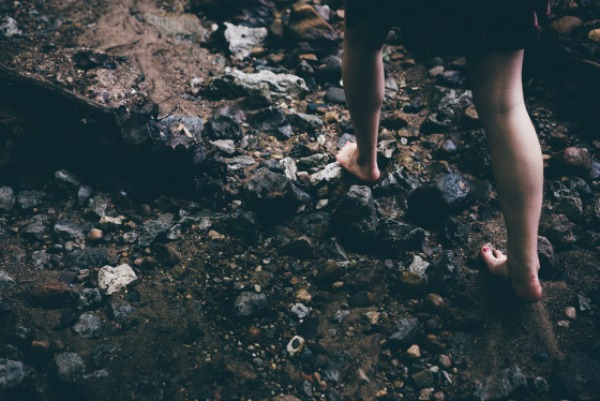“Courage is found in unlikely places.”
― J.R.R. Tolkien
Over the course of this past year, a lot of people told me I inspired them.
I wasn’t really sure what on earth they were talking about. I’m still not 100% sure I get it.
Sure, I was going thru cancer treatment, and it was hard (um, really hard), but it wasn’t like I got up every morning, wove flowers in my non-existent hair, and, as some low-flying birds and magical forest nymphs flitted around me, sang in a melodious voice:
“Now, how can I inspire people today?”
Nope.
I was pretty much just trying to figure out how get through the freaking day ahead of me. Upright, if possible.
That meant putting one foot in front of the other. Acting with intention and integrity as much as I could. And saying “no” a lot more than ever before, as well as some carefully cultivated “yeses” to situations, people and circumstances that supported me on my healing path.
I think what people who found me inspiring were trying to tell me was that my on-going willingness to be vulnerable, open and honest about what was actually happening to me – including the parts that, frankly straight out, sucked – opened something up in them.
That my willingness to face what no one wants to face – that we’re all going to die, some of us sooner (perhaps much sooner) than later – helped them be more honest about some basic truths in their own lives.
Being real, curious and open
I frankly think we’re all thirsting for that: honesty. Vulnerability. Realness and truth instead of fakery or pretending. Real connection.
Whether we’re at work, or at home, or out in the community, honesty isn’t just the best policy, it’s frankly a whole lot easier, ultimately.
We’re all shaped by culture, family, larger societal norms – as well as all the “ism’s” – racism, sexism, heterosexism, to name a few – and it can be a true act of courage to show who we really are to a broader world, who may frankly, not like it, find it threatening, or completely dismiss our experience as reality.
But if we are truly to embrace the breadth of human existence, in all its beauty and its glorious imperfection, we have to be willing both to understand and express our own truths, as well as stay curious and open about the realities of others.
Being willing to be uncomfortable
Being brave also means being willing to be uncomfortable. Beyond cancer, I’ve also been on a learning journey of another sort over the past few years to understand more about white privilege and racism as systemic issues, and take responsibility for the part I play in perpetuating systems of injustice.
After Ferguson happened, realizing that my white, blond-haired, blue-eyed son, the same age as Tamir Rice, would never be stopped by police for wearing a hoodie, I couldn’t sit by any longer and pretend racism had nothing to do with me.
Listening, learning, speaking up and acting at a wholly different level around racism and white supremacy has meant stretching skills and practices into new areas for me. It’s rarely comfortable or familiar.
But it is important, if I’m serious about a just and equitable world.
Not because it looks good, or inspires, but because it’s being honest, true and real.
What it means to be brave
Whether in the personal or professional realm, being brave means knowing what you stand for and showing up for it. Being in it for the long haul, the marathon, putting one foot in front of the other, whether you feel like it or not. Being willing to be uncomfortable, maybe even awkward or wrong. Saying yes and no. And acting with intention and integrity.
You build the muscle of “brave” by being brave. Day after day after day.
And that’s what leadership is. It’s not particularly sexy or easy, but it is courageous.
Over to you
In the Comments below, I’d love to hear your thoughts. What does it mean to you to be brave? What helps you step up to be courageous in your own life or leadership?
Loved this post?
Then use the icons below to tweet it, share it on Facebook and send it to specific friends via email.
Photo credit: Pixabay


 Before specializing as a professional coach in 2004, I spent more than a decade in leadership, management and program development for state and local government and non-profit organizations. Now I get to help leaders and teams have more clarity and ability to stand up for what's important in their work and in their organizations. Working with me, leaders and teams find more meaning and purpose, feel happier and more confident, navigate change and conflict, and work together better.
Before specializing as a professional coach in 2004, I spent more than a decade in leadership, management and program development for state and local government and non-profit organizations. Now I get to help leaders and teams have more clarity and ability to stand up for what's important in their work and in their organizations. Working with me, leaders and teams find more meaning and purpose, feel happier and more confident, navigate change and conflict, and work together better.